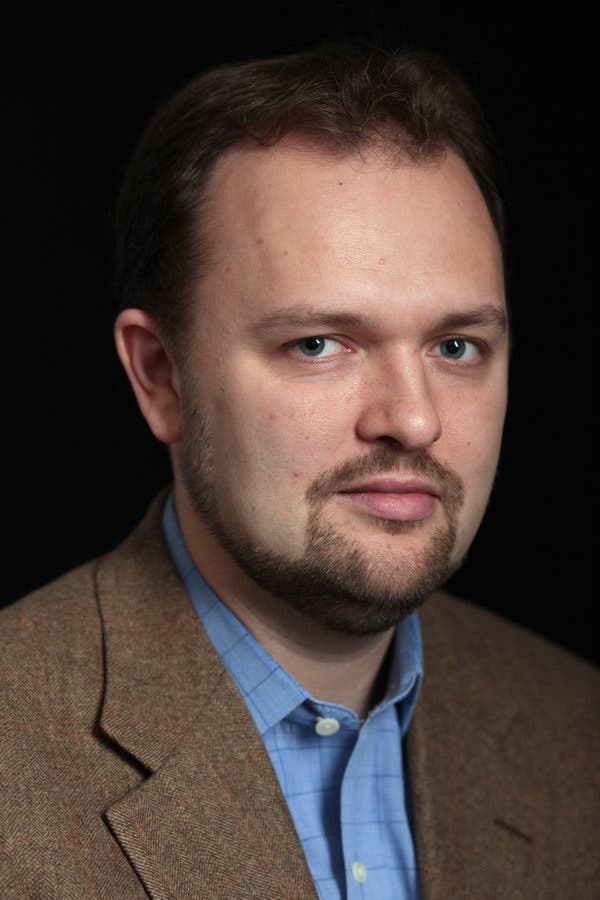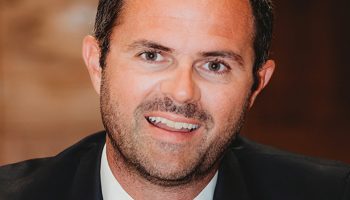MAX ZAMBRANO – STAFF WRITER

Ross Douthat understands his unique role as a conservative opinion columnist at The New York Times.
“Our readership, as you may have heard, is somewhat liberal,” he said. “I think I have a somewhat distinctive role where I’m, more than a lot of columnists, writing for people who tend to disagree with me somewhat.”
Douthat said he expects a similar situation at 1 p.m. Wednesday, Aug. 11 in the Amphitheater when he will present his lecture “Secularism and Stagnation: How Our Economy Became Decadent,” because he suspects most of his audience will be politically left-leaning.
But Douthat will still ask everyone from both sides of the political spectrum to find middle ground.
Giving the last Week Seven Interfaith Lecture themed “Creating an Economy that Works for All,” Douthat said he will explain how decadence, a focal point in his 2020 book, The Decadent Society: How We Became the Victims of Our Own Success, means economic, cultural and political stagnation.
Moreover, he will talk about how this stagnation manifests itself in the economy, and how problems like declining birth rates in developed countries or the opioid epidemic are connected between the economy, culture and politics.
At the Times, Douthat writes two columns each week, typically about politics, religion, moral values and higher education. His recent columns include “How Strong Is Trump’s Grip on the G.O.P?” “The Ungovernable Catholic Church,” and “How to Reach the Unvaccinated.”
“I see part of my job as trying to find a certain amount of common ground in our extremely polarized era,” he said. “Part of my job is to sort of challenge my readers’ preconceptions about the nature of the world.”
In his forthcoming book, The Deep Places: A Memoir of Illness and Discovery, Douthat details his six-year-long battle with a chronic form of lyme disease, an illness caused by certain types of ticks.
“Most people get better with a couple courses of antibiotics, and some highly debated percentages of people don’t get better,” he said. “There’s a huge debate within American medicine about what this means — whether people who don’t get better are still sick with lyme disease, or whether they have some sort of post-treatment syndrome that isn’t directly connected to an infection.”
Although he focused on lyme disease in the memoir, he hopes it adds to a larger discussion about mysterious long-term symptoms, particularly with those associated with COVID-19.
That book will be released in October.
The pandemic has also caused a strange period in economic policymaking, he said.
“Because of COVID, we’ve done all kinds of things we’ve never done before,” he said, “like shut down the entire economy, and spend enormous sums of money paying people not to work for extended periods of time.”
Douthat thinks there is a narrative among Democrats and left-leaning people that the U.S. has just experienced another Gilded Age, where the rich have gotten richer and others have struggled.
“Therefore, (they think) a lot of our problems can be simply solved by redistributing wealth from the super-rich to the rest of society,” he said. “I think there is a palace for certain kinds of redistribution, but I’m hoping to convince people that our problems are more about stagnation than they are about wild, out-of-control growth.”
Issues with inequality might be better addressed with a more dynamic economy, he said, while noting he doesn’t have an exact answer on how to achieve that, though he doesn’t think anyone is entirely sure.
Both the right and the left tend to associate issues with either social, cultural or economic trends. Douthat will instead argue that these are all associated with one another.
“There’s a tendency on both the right and the left to only take one side of the story — so if something is wrong in American society, the right blames the culture and the left blames the economy,” he said. “Actually, they’re usually bound together in this way where you have to see the problem in both senses in order to get closer to solutions.”
Fewer Americans marrying or having as many kids is one example of this, he said. The right might argue it’s an issue with individualism and the breakdown of traditional values, while the left might argue people can’t afford to have kids, he said.
“I’d like everyone to consider the possibility that both things could be true,” he said.




